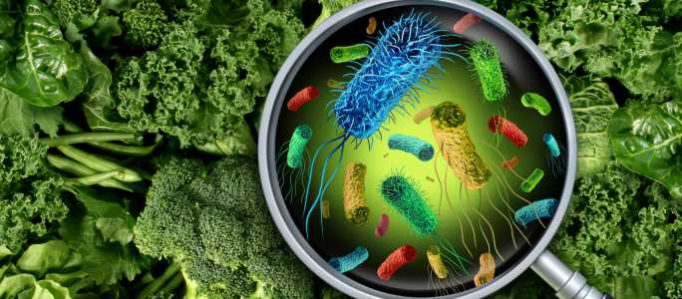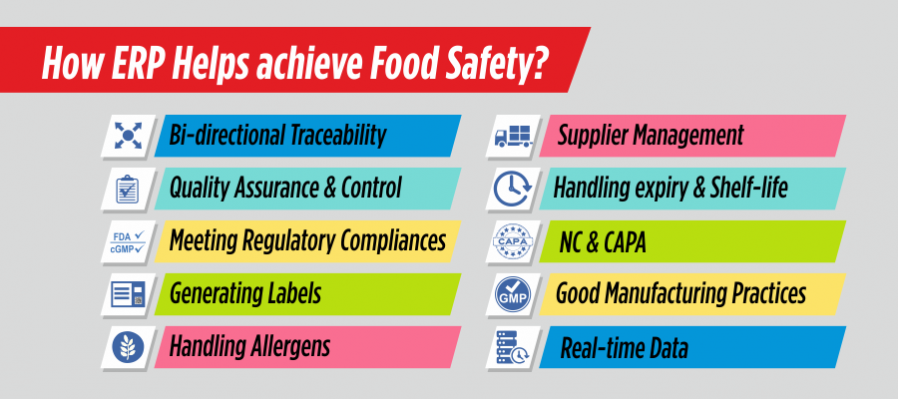

The world is coping with the coronavirus pandemic (COVID-19) – one of the biggest challenges witnessed in recent times. Across the globe, it has disrupted lives, livelihoods, and businesses- predominantly the tourism, aviation, hospitality, and food manufacturing industries.
Food manufacturing industry, in particular, has always been sensitive to such events, as the fear of a foodborne illness emerging in such times engulfs the consumers.
And even as currently there is no evidence of food being associated with the transmission of COVID-19, food safety is still a concern for manufacturers and consumers alike. This is primarily because of the widespread acceptance that the virus originated in a meat market in China.
This has led to a massive consumer rethink around food
A recent survey by The Packer suggests that the fear of catching coronavirus from food has led the grocery shoppers in the United States of America (USA) to buy less fresh produce. They are also demanding complete transparency and visibility into the food they are consuming.
This actually comes after a series of major food recalls, and few food borne illnesses in recent years. The consumers thus want to know where the ingredients it is made of are obtained from, how and where it is prepared, and how it is produced and stored.
But the manufacturers don’t find it easy to allay these public concerns.
With the rise in recalls, manufacturers look for solutions

The numbers in other big manufacturing hubs across the globe were also on the higher side. The rise in cases of food recalls has led to the global demand for better record-keeping and visibility in the food supply chain.
To achieve this visibility into food safety, the food manufacturers look for a tool that can help them balance profitability in operations and compliance with government regulations too. Their search ends at ERP systems acting as food safety software.
But such software can either bog down the food manufacturing processes by making them complex, or help the food manufacturers meet food safety regulations and provide visibility into the food supply chain by offering greater traceability and accountability.
It is important for the food manufacturers to choose the latter.
ERP for food safety remains the way forward
BatchMaster ERP for Food and Beverages falls in the category of software that help food manufacturers meet food safety and quality. Here are a few ways through which it can help:
End-to-end traceability
The food manufacturers who still operate with manual, paper-based processes, take days to track the problem ingredients to their source. This results in loss of time, money, business, and even penalties by regulatory bodies.
BatchMaster’s food safety software enables forward and backward traceability, which means a food manufacturer, can track all the phases of a food product’s procurement, production, and distribution from an ingredient to delivery to the customer, and also from a distribution center back to a manufacturing plant. This bi-directional traceability comes in handy while responding to product recalls.
Quality Control
Besides, it is important for the food manufacturers to have a mechanism that ensures the quality of raw materials & products, right from when they enter the business premises, to the time when they leave the four walls of the business as a finished good.
Pre-Process, In-Process and Post-Process QC
An ERP with built-in quality control functionality enables the food manufacturers to define QC tests at every step- right from receiving the raw materials, through to production, and shipment. Any material that fails the test, is either rejected or sent for quarantine. Only the material that meets quality standards proceeds to the production stage.
NC & CAPA Support
The QC module of a food ERP software also enables food manufacturers to implement non-conformance/corrective action preventative action so that they can act proactively and identify issues before they happen. This way, quality becomes their competitive advantage.
Meets Good Manufacturing Practices
A Food ERP solution also governs the movement of material based on the lot statuses ensuring that only the lots with status as QC approve/pass move ahead in the supply chain, thereby meeting the most important requirement of GMP of Food businesses.
Connect shop floor with the top floor
Food manufacturers struggle when it comes to connecting the plant to top management or integrating the manufacturing plant data into the system. This integration, when happens, provides valuable data captured on the shop floor to the management, offering greater visibility into raw materials.
BatchMaster ERP for food safety acts as a bridge between the shop floor and the top floor and connects the two. This integration results in a smooth flow of real-time data between the two, enabling the management to make data-driven and timely decisions with respect to the raw materials, and thus ensuring quality & safety.
Inventory visibility & control
Having excess inventory is never good for a manufacturing business, as most of it is perishable. A manufacturer’s inability to manage raw materials with limited shelf-life before their “use by” dates can result in spoilage and lead to quality and safety issues.
BatchMaster ERP for food safety empowers the food manufacturers with its inventory management and materials requirement planning (MRP) functionalities. It allows issuing material based on expiry so that material nearing expiry is used first and restricts the use of raw-material in production that are expired thus ensuring safety.
“Safety is paramount when it comes to food allergy,” said Ignacio J. Ansotegui, MD, Ph.D., of Hospital Quirón Bizkaia, in Bilbao, Spain, and the WAO()World Allergy Organization President.
Because there is no active treatment yet, and avoidance of food allergens is the only strategy. Proper handling as well as segregating inventory based on Allergens, Halal, Kosher certificates, etc. also is made possible by a Food ERP System.
Regulatory compliance
The food manufacturing industry faces multiple regulations since its products put the consumer be it humans or animal health at stake. Talking just about the USA market, manufacturers are required to adhere to the regulatory requirements of current Good Manufacturing Practices (cGMPs), Food & Drug Administration (FDA), the Food Safety Modernization Act (FSMA), and Hazard Analysis and Critical Control Points (HACCP).

What these regulations share in common is the idea that the establishment of well-documented procedures at every stage of the manufacturing process drives food safety. An ERP for food safety such as BatchMaster ERP for food helps meet all the local, regional, national, and international regulatory requirements along with the generation of Nutritional Labels, Supplement Fact sheets, Ingredient Statements, and other FDA reports plus labels. In turn, helping you ensure food safety.
Supplier Management
The quality and safety of your food products are mainly governed by its building-blocks, its raw materials. Thus procuring them from a certified vendor is not just need but a regulatory requirement too. A Food ERP Solution not just suggests you the best vendor based on its certificates, lead-time, quality, prices, etc, but also alerts you when procuring from a vendor whose certificates are expired or nearing expiry.
In a nutshell
In today’s time, when commutable viruses have controlled our lifestyle and movement, restricting its spread is the key. Having a Food Safety ERP solution can help you ensure the safety of food from viruses too through its 360–degree quality and compliance approach. Having it implemented is now not a luxury but a dire necessity to produce safe and quality food, be responsive and win customer confidence.
Want to learn more about how effective food safety software such as BatchMaster ERP for Food can aid you? Get in touch with our food experts today. Log in to our website to know more about our ERP offerings for different micro-verticals of the food & beverage manufacturing industry.

